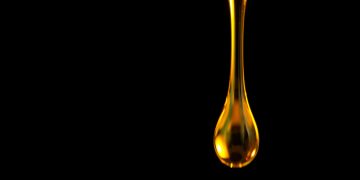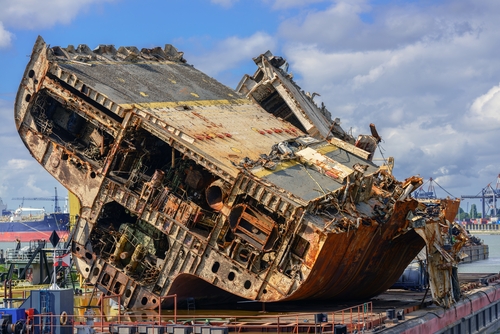According to GMS’ latest weekly ship-recycling report, ship recycling markets are anticipating an uptick in activity during 2025.
As a year of turmoil and global economic tumult winds down on a quiet note, as has historically been the case for the week between Christmas and New Year, the world silently turns its attention to anticipating a 2025 that signals a comparatively busier period across all sectors. For week 52, however, it was a different story: not only did global trade ease this week, but economies also took a breather against the raging U.S. Dollar, as most ship recycling nation currencies irrationally displayed the same amount of instability, resulting in a quieter port position in both India and Bangladesh.
Moreover, shockingly, despite performing well for most of the year, the Baltic Dry Exchange Dry Bulk Index slid rapidly over Q4 2024, recording a 52.5% annual decline, the worst since 2014. Sectors such as the Capesize index fell 66.7%, the Panamax index dropped 48.7%, and even Supramaxes saw a 32% decline across the year. While the wet sector continues to show some tonnage after a long hiatus, the supply of recycling vessels heading into 2025 is gearing up for an uptick. The declining Baltic Exchange also saw oil prices relax around USD 70.6 per barrel for the week, as non-OPEC+ countries are expected to drive up output despite dithering Chinese demand, with China being the largest importer of oil in the world.
2024 has also marked a year of noteworthy transitions and development across international recycling markets, with efforts to upgrade facilities and implement the HKC in the respective Indian subcontinent ship recycling destinations. This highlights the willingness of these governments to engage in ship recycling under internationally accepted safety and environmental standards. 2025 should hopefully see Pakistan and Bangladesh ramp up yard upgrades to HKC standards ahead of its entry into force mid-year. Local steel plate prices have faced their worst times, falling over USD 150/ton from earlier highs. By the close of this week, both Indian and Pakistani steel plate prices reported further declines, while Bangladesh and China flatlined.
The supply of tonnage saw record-low recycling volumes, and yards are yearning for busier days ahead as freight markets increasingly divert more candidates for recycling after a year of strong charter rates. Recycling prices themselves saw significant declines over the course of the year, from a high of USD 600/LDT in Q1 to USD 450s/LDT in Q4 2025. This has left most recycling yards suspended in a state of limbo, as a permanent shutdown would be more costly than a temporary operational closure, which several yards in the Indian subcontinent and even Turkey have reported throughout the year. Political instability in the subcontinent has added to the inability of these economies to stabilize and match their offers with the volatility of the U.S. Dollar.
In India and Bangladesh, PM Modi failed to win the required majority in India’s 2024 election, and PM Sheikh Hasina fled Bangladesh after an insurrection led to an interim military government taking charge, resulting in infrastructure projects being put on hold. President Trump’s second term will also pose challenges for global nations, as looming tariffs may spell disaster.
Overall, an unprecedented year in recycling markets is hoping to recover, with increased volumes, more regulations, and certainly a shade of volatility.
| Rank | Location | Sentiment | Dry Bulk USD / LDT | Tankers USD / LDT | Containers USD / LDT |
|---|---|---|---|---|---|
| 1 | Bangladesh | Stable | 470 / LDT | 490 / LDT | 500 / LDT |
| 2 | India | Stable | 460 / LDT | 480 / LDT | 490 / LDT |
| 3 | Pakistan | Stable | 450 / LDT | 470 / LDT | 480 / LDT |
| 4 | Turkey | Weak | 310 / LDT | 320 / LDT | 330 / LDT |


























































